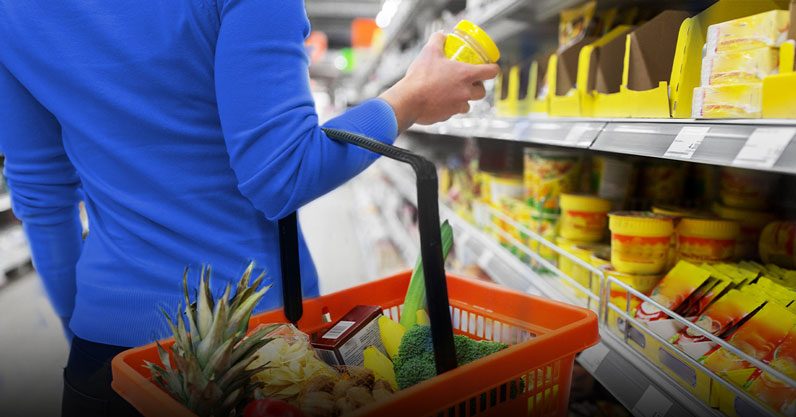Self Quarantine Necessities, Preparations To Help Fight COVID-19
4 min readThe World Health Organization (WHO) has officially declared COVID-19 a pandemic—but lucky for us, there’s hope.

One of the most effective means to prevent the spread of COVID-19 and bring this pandemic to a close is self-quarantine. With proper medical care and rest, you can weather out the sickness in no time.
It’s about time we address the fact that there’s a difference between being prepared and panic-buying and hoarding.
On buying supplies: panic-buying causes more danger
One particularly loathsome way that hoarding impacts the COVID-19 response is hoarding and excessively profiteering on high-demand supplies like alcohol, face masks, and hand sanitizers.
This is not helpful, as a circulating Facebook post points out:
“When you hoard things like hand sanitizers, alcohol, hand wipes-you are actually spreading the virus more by depriving other people the chance to protect themselves.
When you stock up on N-95 masks, you are depriving frontliners like doctors and nurses precious personal protective equipment.
When you panic buy surgical face masks and use them even if you do not have symptoms, you are putting yourself more at risk because you are taking away scarce resources from sick people who need them more.â€
Not only is hoarding these items during a time of need unethical,it is also illegal. The Department of Trade and Industry (DTI) has said that they have placed a 60-day price freeze on basic necessities.
Retailers—or anyone—who are caught taking advantage of the COVID-19 situation can face legal ramifications.
Another measure that people should remember is the limiting the purchasing of alcohol and disinfectants. A customer is only allowed to purchase two bottles of alcohol or disinfectants.
DTI Undersecretary Ruth Castelo said in an interview that people will only be allowed to by two bottles of disinfectant regardless of the size.
“If you choose the 60 ml, dalawa lang bote. Kung gusto mo yung 500 ml dalawa lang rin ang pwedeng bilihin ng isang tao,” Castelo explained.
You can buy two bottles of alcohol and another two bottles of another disinfectant such as hand sanitizer. This should be more than enough to help with hygiene, especially as these aren’t the most effective way to kill COVID-19. Hand-washing for 20 seconds or more with soap will.
(Read: 10 Online Grocery Shopping Websites That Offer Home Deliveries)
No face masks: should I panic?
Most health experts, including the WHO and DOH say face masks should be reserved for those who are sick or who are directly caring for the sick.
A recent TedTalk titled “Coronavirus Is Our Future†by global health expert Alanna Shaikh explains it nicely.
She said that if you’re not sick, there’s really no need to wear a mask. “If you’re a regular healthy person wearing a face mask, it’s just making your face sweaty,†she said. And we all know that when your face is sweaty, it’s another reason to make you touch your face even more.
Shaikh also left some personal advice to people, such as washing your hands even more and sanitizing your phone.
“Consider not using [your phone] as often in public. She also left another common reminder to not touch your face, rub your eyes, or bite your fingernails. And if you’re sick, Shaik reminds us that,“your facemask holds in all your coughing and sneezing and protects the people around you,†she said.
“Leave the face masks in stores for the doctors and the nurses and sick people. If you think you have symptoms of COVID-19, stay home, call your doctor for advice. If you’re diagnosed with COVID-19, remember, it’s generally very mild. And if you’re a smoker, right now now is the best possible time to quit smoking,†she concluded.
Self-quarantine checklist
First, let’s get the important bit out of the way: how long should you self-quarantine? Health experts recommend 14 days as the symptoms manifest during the same time period.
Aside from getting the essentials of water and food supplies, here are the foods with longer shelf life and items you can start stocking up on—but not hoard.
- First aid kit: include over-the-counter flu medicine and vitamins
- Prescription medicine: if you or any of your family members need it
- Canned foods with liquid such as pork and beans, tomatoes, corn, tuna, and sardines
- Pasta and canned ingredients like pesto and olives
- Cleaning supplies
- Laundry detergent
- Immune-boosting foods, such as ginger, lemons, apples, pineapples, and herbal tea
- Salt, and spices like garlic and onion, dried herbs, and other flavor enhancers as soy, chili, and oyster sauce
- Fruits and vegetables of your choice: use this for cooking, or make power smoothies
- Pet food
- Coffee, sugar, and milk
- Instant noodles
- Meat products and frozen foods
- Canned meat products like meat loaf and sausages, which will last long after the self-quarantine is over
- Peanut butter or your favorite spread, for that matter and bread
- Lights and power sources, as part of your disaster preparedness at home
- Alcohol—and not the rubbing kind: optional because who says you can’t chill and have a little fun through all this?
Stay healthy by maintaining a healthy diet, and following the health and safety instructions above and that of the authorities. Keep yourself updated with the latest news and, if possible work from home.
Instead of exploiting the situation for our own gain, now is the time to look after one another and ensure everyone’s needs are met. In the wise words of High School Musical, “we’re all in this together.”
Other Sources: Crisis Equipped
